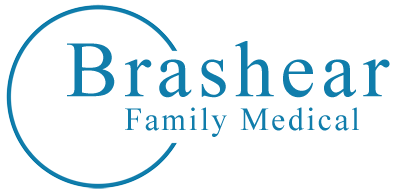Developing healthy eating habits is not as confusing or as restrictive as many may imagine. It’s not about strict dietary limitations, staying unrealistically thin or depriving yourself of the foods you love. Rather, healthy eating is about feeling great, having more energy, improving your health and stabilizing your mood. You are not alone if you feel overwhelmed by all the conflicting nutrition and diet advice out there. Using these simple diet tips, you can cut through the confusion and learn how to create a tasty, varied and healthy diet that is as great for your mind as it is for your body.
Healthy Diet and Mental and Emotional Health
While we all know that eating right can help maintain a healthy weight and avoid certain health issues, your diet can also have a significant effect on your mood and sense of wellbeing. Studies have shown that eating a typical Western diet—filled with processed meats, packaged meals, takeout food and sugary snacks—is linked with higher rates of depression, stress, bipolar disorder and anxiety. An unhealthy diet may even play a role in the development of mental health disorders such as ADHD, Alzheimer’s disease and schizophrenia, or in the increased risk of suicide in young people.
Conversely, eating more fresh fruits and vegetables, cooking meals at home and reducing your intake of sugar and refined carbohydrates may help to improve mood and lower risk for mental health problems. If you have already been diagnosed with a mental health problem, eating well can assist in managing your systems and regaining control of your life.

Some foods or nutrients have been shown to have a beneficial effect on mood, but it is your overall dietary pattern that is most important. This means switching to a healthy diet does not have to be an all or nothing proposition. You don’t have to be perfect and you don’t have to completely eliminate foods you enjoy to have a healthy diet and make a difference to the way you think and feel.
Set Yourself Up for Success
Changing everything all at once typically results in cheating or giving up on your new healthy eating plan. Setting yourself up for success requires you to think about planning a healthy diet as a number of small, manageable steps—such as adding a salad to your diet once a day—rather than one big drastic change. As your gradual changes become habit, you can continue to add more healthy choices. A few ways you can help set yourself up for success include:
 Preparing more of your own meals
Preparing more of your own meals- Replacing unhealthy foods with healthy alternatives
- Avoid packaged and processed foods and opt for more fresh ingredients
- Read the labels
- Focus on how you feel after eating
- Drink plenty of water
Moderation is Key
The key to any healthy diet is moderation. However, the term moderation may be broad to many. In essence, moderation means eating only as much food as your body needs. At the end of a meal you should feel satisfied, but not stuffed. Moderation is also about balance. Despite what many fad diets would have you to believe, we all need a balance of protein, fat, fiber, carbohydrates, vitamins and minerals to sustain a healthy body.
For the majority of us, moderation also means eating less than we do now. However, it does not mean eliminating the foods you love. For example, eating bacon for breakfast once a week could be considered moderation if you follow it with a healthy lunch and dinner—but not if you follow it with a box of doughnuts and a sausage pizza. If you eat 100 calories of chocolate one afternoon, this can be balanced out by deducting 100 calories from your evening meal. If you are still hungry, consider filling up with extra vegetables. A few more tips for moderation in your healthy diet include:
 Try not think of certain foods as “off-limits”, but rather just reduce portion sizes of unhealthy foods.
Try not think of certain foods as “off-limits”, but rather just reduce portion sizes of unhealthy foods.- Think smaller portions.
- Take your time. Stop eating before you feel full, as it actually takes a few minutes for your brain to tell your body that it has had enough food.
- Eat with others whenever possible. This not only has emotional benefits, but also allows you to model healthy eating habits for your kids.
Cut Back on Sugar

Aside from portion, probably the single biggest issue with the modern Western diet is the amount of added sugar in our food. Not only does sugar create weight problems, too much sugar causes energy spikes and has been linked to diabetes, depression and even an increase of suicidal behaviors in young people. Reducing the amount of candy and desserts you eat is only part of the solution as sugar is also hidden in foods like bread, cereals, canned soups and vegetables, pasta sauce, margarine, instant mashed potatoes, frozen dinners, low-fat meals, fast food and ketchup. Typically, your body receives all it needs from sugar naturally occurring in food so all this added sugar just means a lot of empty calories.
Eat Plenty of Colorful Fruits and Vegetables

Fruits and vegetables are low in calories and nutrient dense. This means they are packed with vitamins, minerals, antioxidants and fiber. Focus on eating the recommended daily minimum five servings of fruit and vegetables and it will fill you up naturally, while also helping you cut back on unhealthy foods. A serving is half a cup of raw fruit or vegetables or a small apple or banana, for example. Most people need to double the amount we currently we eat. Intake can be increased by adding berries to breakfast cereals, eating fruit for dessert, swapping your usual side dish for a salad and snack on vegetables such as carrots, snow peas or cherry tomatoes instead of processed snack foods.
Fill up on Fiber

Eating foods high in dietary fiber has numerous benefits, including helping you to stay regular, lowering your risk for heart disease, stroke and diabetes, and helping you lose weight. Depending on your age and gender, nutrition experts recommend eating at least 21 to 38 grams of fiber per day for optimal health. Many don’t even eat half that amount.
Healthy Carbs and Whole Grains

Choose healthy carbohydrates and fiber sources, particularly whole grains, for long-lasting energy. Whole grains are rich in phytochemicals and antioxidants. This can help protect against coronary heart disease, certain cancers and diabetes.
Calcium for Bone Health
Calcium is utilized by your body to build healthy bones and teeth, keep them strong as you age, send messages through the nervous system and regulate the heart’s rhythm. Not getting enough calcium in your diet can lead to your body take calcium from your bones to ensure normal cell function, which can lead to osteoporosis.

Recommended calcium levels are 1000 mg per day, 1200 mg if you are 50 years old. Try to get as much calcium from your food intake as possible and use only low-dose supplements to make up any shortfall. Foods that deplete your body’s calcium stores should be limited. These include caffeine, alcohol, sugary drinks). In addition, do weight-bearing exercise and get a daily dose of magnesium and vitamins D and K—nutrients that help calcium do its job.
Put Protein in Perspective

Protein gives your body energy to get up and go—and keep going. Too much protein can be harmful to individuals with kidney disease, but the latest research suggests that most of us need more high-quality protein, particularly as we age.
These are just a few tips for maintaining and enjoying a healthy diet plan. Don’t hesitate to contact Brashear Family Medical with the link below for more information!

